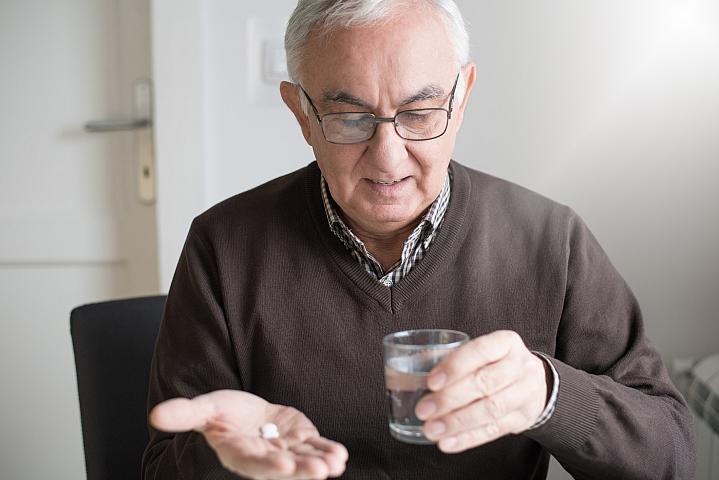Health Capsule
Millions Taking Aspirin Without Clear Benefit
 Taking a low-dose aspirin daily may help prevent heart disease for some people, but it also has risks. RgStudio / E+ via Getty Images
Taking a low-dose aspirin daily may help prevent heart disease for some people, but it also has risks. RgStudio / E+ via Getty ImagesMany people take aspirin every day to prevent a heart attack or stroke. But daily aspirin isn’t advised for everyone. A survey found that about 29 million adults without heart disease take low-dose aspirin for prevention. But many of them shouldn’t under new guidelines.
Aspirin works by thinning the blood and preventing clots. But taking a daily aspirin can also increase the risk of bleeding.
New studies found that aspirin has little benefit for some people. As a result, experts no longer recommend daily low-dose aspirin for adults age 70 and older—or for people with a higher risk of bleeding, like those with stomach ulcers.
So how many people are affected by the new guidelines? To answer this, scientists surveyed 14,000 adults age 40 and older. About 23% of people without heart disease were taking a daily aspirin for prevention. Almost a quarter of these did so without a health care provider’s recommendation.
Nearly half of people age 70 and older who did not have heart disease reported using aspirin daily. So did a quarter of people with a history of stomach ulcers.
“Our findings suggest that a substantial portion of adults may be taking aspirin without their physician’s advice and potentially without their knowledge,” says Dr. Christina Wee at Harvard University, who led the study.
Talk with your doctor if you’re taking aspirin daily or plan to start.
NIH Office of Communications and Public Liaison
Building 31, Room 5B52
Bethesda, MD 20892-2094
nihnewsinhealth@od.nih.gov
Tel: 301-451-8224
Editor: Harrison Wein, Ph.D.
Managing Editor: Tianna Hicklin, Ph.D.
Illustrator: Alan Defibaugh
Attention Editors: Reprint our articles and illustrations in your own publication. Our material is not copyrighted. Please acknowledge NIH News in Health as the source and send us a copy.
For more consumer health news and information, visit health.nih.gov.
For wellness toolkits, visit www.nih.gov/wellnesstoolkits.



